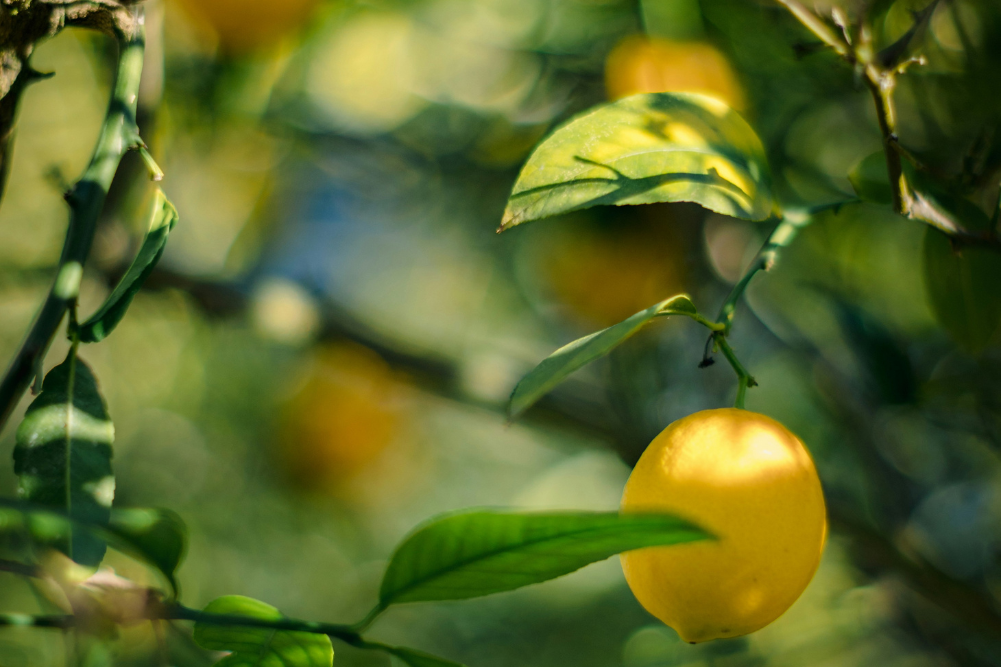Healing from crisis: The unsung power of giving
Our social responsibility and generous spirit have kept us afloat during a year of crisis, but more than simply supporting our communities, giving takes us on a personal journey of healing.
It has been a year fraught with climate, virus and economic anxiety. We have been turned inside out, our sacred “normal” shaken from us with such vigour that we’ve been left battered and bruised from a tumble dryer of crises set to high heat and maximum spin. Everything that once felt reliable is now draped in fear and the impact feels brutally physical.
But we’re a resilient species, us humans. Each of the year’s disasters has been followed by a procession of headlines reporting million-dollar fundraisers, “pivoting” businesses and community support groups devoted to aiding the elderly and those vulnerable to COVID-19. There have been campaigns to encourage travel to bushfire affected towns and gift card endeavours to help struggling restaurants.
… embracing the spirit of generosity, especially at this time of year, cultivates more joy and fulfilment in our lives.
We’re still here, still navigating the chaos, weaving a patchwork quilt of “new normals” ready for more of the socially distanced chill that lurks on the horizon.
Our social responsibility has saved us, like a lifebuoy holding us afloat at sanity’s surface. We have worn the masks, bought from the bush, used our voices and platforms to speak out against injustice, and it’s working. But we must continue to look outside ourselves if we are going to find our way back home.
Unemployment has surged and the global economy is facing its worst downturn since the Great Depression. Charities are being asked to step up with half the money and half the resources. Fun runs, marathons, midnight walks and thousands of other events supporting good causes have gone.
No doubt there is plenty to mourn, but tragedy can also inspire heartwarming generosity. And it’s not simply about helping those in need, although the vulnerable should always be central to our efforts. Time and time again, research shows that giving to others enhances one’s own happiness.
It’s important to invest in the causes that reflect your own values, so consider big issues on a smaller or more personal scale.
Call it the Grinch Effect or that worn-out “what goes around comes around”, but embracing the spirit of generosity, especially at this time of year, cultivates more joy and fulfilment in our lives.
In our darkest moments, being reminded that there are people much worse off and that there is plenty you can do to help can lift us out of a potential inward implosion. Generosity is a potent prescription for treating feelings of helplessness, anxiety and frustration. It roots you in the here and now, offering a purpose that serves a bigger picture.
When we’ve been battered and hollowed, giving back to our communities can fill us up, zapping us with the energy needed to pick ourselves back up and carry on until the storm passes.
Choose a problem you care about
This year has delivered a tsunami of crises; not a rainy day, or even a rainy week, but an ongoing typhoon. The many problems (and their many potential solutions) feel utterly overwhelming, and knowing where to begin in your efforts to give back can be like trying to choose which of your children you love the most.
With so many worthy causes in desperate need, it might be helpful to think about how global issues have impacted your local community or affected you personally. It’s important to invest in the causes that reflect your own values, so consider big issues on a smaller or more personal scale.
What we know about the epidemic, for example, is that its causalities will not be seen just in intensive care. They will be found in your local restaurants, nursery schools and housing commissions. Perhaps you don’t know anyone suffering in a hospital with the virus, but no doubt you have an elderly neighbour struggling to buy groceries safely, or a single mum who needs an extra pair of hands while working from home. If you live in an apartment block, advertise yourself as a helping hand on a public notice board, or check Facebook community groups to see if there are people in your neighbourhood in need of assistance.
Rather than back away from your charitable impulse, scared off by the scale of the problem, ask yourself: What can I do?
Equally, it’s important to help those outside your spheres, and perhaps a problem afar has really hit home. You don’t have to live in a regional area to aid in the rebuilding of bushfire-ravaged towns, or be American to care about racially motivated police brutality. If a problem makes you grit your teeth in anger or a cause speaks to your philosophy, then get involved.
Think about what you have to give
It’s easy to look at a problem and think: What on earth could I do to change this? How can my minute efforts make a difference? But action is cumulative and even the biggest problems are personal. Rather than back away from your charitable impulse, scared off by the scale of the problem, ask yourself: What can I do?
You don’t have to be Bill Gates-rich to donate money; even the smallest amounts help. If you have nothing more to spare, think about where you’re spending rather than how much. Consider doing your Christmas shopping at small, regional businesses that have been affected by bushfires and a desolate tourism year, or from Indigenous brands like Clothing the Gap and Ant Gin. Do your weekly shop at a local grocery store or farmers’ market rather than the big supermarkets and buy your toilet paper from Who Gives A Crap, who donate 50 per cent of their profits to building toilets in developing countries.
Money is just one of many ways you can help. Consider contributing your talents and experience to a worthy cause. The pandemic finds many of us with more time, less money and plenty of concern for our struggling communities.
If you’re in a more senior position in your career, there are opportunities to join charity boards or mentor growing not-for-profits and social enterprises through various programs. Fundraising Institute Australia pairs mentors with fundraising groups and charities through a dedicated program, ensuring harmonious matches in which mentors can offer their skills, insights and experience to guide growing organisations.
The groups most in need of manpower are those working on the frontline of helping people through the pandemic, such as food banks feeding families and those answering a surge of welfare calls.
Charities are regularly looking for talent to help market their efforts and deliver their programs, and often need specific skills to build landing pages, lend business plan guidance, write blog posts and manage fundraising efforts. If you’re a remote freelancer with time to spare, you’re well positioned to offer your skills while making a positive change in your community. The UN are looking for virtual volunteers for translating, writing, project development and management, research, outreach and more, or browse volunteer opportunities on LinkedIn for Good by searching the word “volunteer”.
Even if you don’t have a particular skillset, time is one of the greatest resources you can give to charities. If you’re one of the many who have found themselves without a job during the pandemic, devote your new-found time to a good cause. Volunteer numbers slumped during the height of the coronavirus and charities are struggling to keep up with increased demand. The groups most in need of human resources are those working on the frontline of helping people through the pandemic, such as food banks feeding families and those answering a surge of welfare calls.
Go virtual
With the party scene on hiatus, many annual charity events are being cancelled or postponed, but some organisers are braving the virtual world by hosting online galas and raffles and live-streaming panel speakers. These events are needed now more than ever. Many casual workers have lost their jobs, struggling artists have witnessed their industry almost entirely evaporate and mental health charities aren’t keeping up with increased demand.
If you’re already involved in a charity event, especially one which supports arts workers and cultural venues, healthcare workers, mental health and those living below the breadline, don’t let your engaged network go to waste. Consider hosting a virtual event in place of your usual gala.
Fun runs, marathons and other in-person fundraising events have also largely been cancelled, but you can still use your network to spread awareness and raise money for a particular cause. If you usually take part in a fundraiser, being limited to social distancing shouldn’t stop you from raising cash for charity. Get involved with the World’s Greatest Shave through a virtual head shave or run a half-marathon in your garden.
Many charities that offer face-to-face support have pivoted where possible. Gig Buddies, a Sydney charity that links volunteers with people with autism or learning disabilities for a fun night out, have launched group chats on Facebook, virtual games and online activities in place of live events. Their “corona catalogue” includes ideas like online nightclub events, live-streamed gigs, virtual museums, online film festivals and more.
Use your voice for good
Wherever you look, there’s a cause that needs your voice. We’re spending more time online than ever so harness that screen time for good.
Urge your local representatives to create systemic change through campaigns and petitions like Raise The Age, which is working to raise the age of incarceration in Australia from 10 to 14 (to bring us in line with the recommendation from the United Nations), or demand safe accommodation for refugees during the COVID-19 crisis.
Encourage your network to sign petitions and email their representatives; provide email templates and URL links to make it easier for others. If you’re something of an expert in a particular field, consider creating educational resources for social media to raise awareness.
Small acts of kindness
The above ideas tend to require some level of planning and commitment, but opportunities for giving appear all around us in our daily lives. Not all charity needs to be rooted through an organisation; simply undertaking small acts of kindness to support your local community goes a long way to help others.
If your schedule is packed or random acts of kindness are more your thing, think of ways you can do a small thing each day or week to help someone from your own community. Offer services like walking a neighbour’s dog, picking up groceries and being on the end of the phone for someone who is lonely. Send a food hamper to an elderly neighbour, offer legal tips to a new business owner or help an out of work friend polish their résumé or craft a stellar cover letter. There are so many small ways you can help someone in need get back on their feet. After all, small acts add up, improving the lives of those around you little by little. And don’t forget, your own acts of generosity might make you happier too.
Ways you can give back today
- Donate to a local foodbank.
- Offer assistance to at-risk neighbours: post support cards offering services like dog walking, grocery shopping and mental health support.
- Explore #BuyfromtheBush for your Christmas shopping.
- Donate to struggling arts organisations.
- Donate blood.
- Support a healthcare worker through the Adopt a Healthcare Worker Facebook group.
- Buy gift cards from restaurants and theatre venues.







